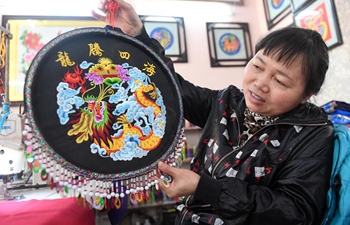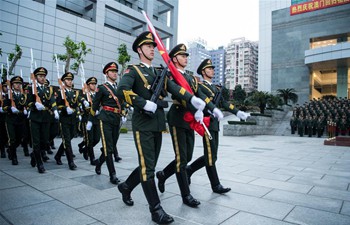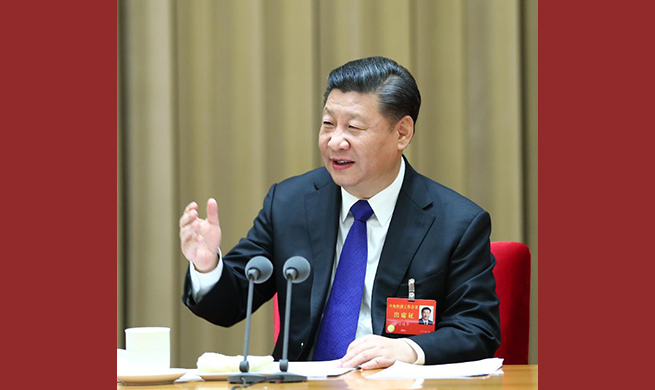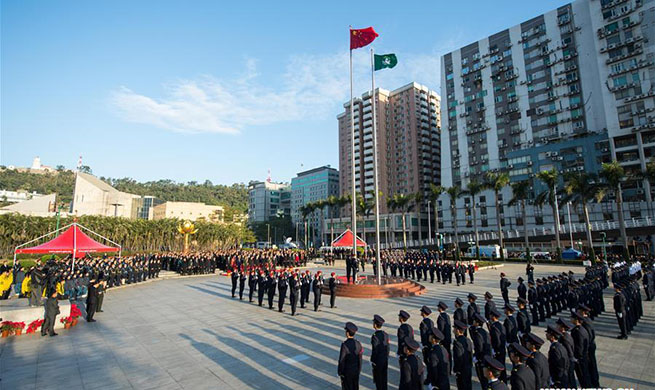MADRID, Dec. 20 (Xinhua) -- The campaign for Thursday's elections in Spain's Catalan region ended on Tuesday night, meaning Wednesday was a day of reflection before people go to the polls.
Two parties -- the center-right constitutionalist party Ciudadanos and left-wing separatists Ezquerra Republicana (ERC) -- look likely to gain the most votes in an election which it appears no political party will come close to winning an absolute majority.
That means whoever claims the most seats in the 135-seat Catalan assembly in the election -- called by Spanish Prime Minister Mariano Rajoy in early November when he suspended Catalan autonomy -- will need to start negotiations to form a coalition government.
However, every opinion poll carried out indicates that not even the sum of any two parties' seats will be enough to create a majority. Therefore, agreements between three or even four political forces will be needed, implying a long period of negotiations lasting well into the new year.
There is a clear demarcation in the vote between parties in favor of keeping the unity of Spain Ciudadanos, Peoples Party and the Socialist Party (PSC)) and those in favor of the independence of the Catalan Region (ERC, Junts per Cat and CUP), with only the left-wing En Comu-Podem sharing any common ground between the two blocks.
Ciudadanos leader Ines Arrimadas has said voters have two choices "prolonging the independence process or starting a new era in Catalonia."
ERC leader Oriol Junqueras has not been able to make any declarations as he is in prison facing charges including rebellion and sedition, and Junts Per Cat leader and former Catalan leader Carles Puigdemont is in exile in Belgium in order to avoid imprisonment on the same charges.
Whatever the final result, a lot of harm has been done to Catalan society. The separatist stance hardened following the police actions against voters during the illegal Oct. 1 independence referendum which left 900 people needing medical treatment. Meanwhile, pro-constitutionalists point to the economic damage caused to the region.
The president of BBVA bank, Francisco Gonzalez, has said the region will grow 20 percent slower than the rest of Spain in 2018, while around 3,000 companies have moved their head offices to elsewhere in Spain as a result of the political uncertainty.
The passions which have risen over recent months look certain to produce a record turnout at the polls with over 80 percent of voters expected to exercise their rights. However, long and difficult negotiations are expected after Thursday, meaning the invoked article 155 of the Spanish Constitution, which gives control of the region to Madrid, is expected to remain in place for a good while yet.

















